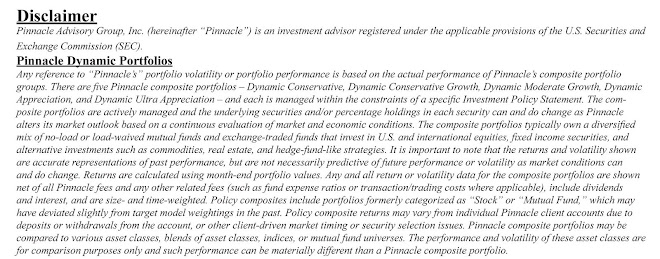These days, U.S. financial companies are not viewed with much respect; in fact the underlying mood in the wake of the financial crash is one of skepticism regarding anything financial-related. Combine this financial distrust with the possibility of a new and frugal U.S. consumer, and a regulatory and political environment that appears to be reversing from a long-term tailwind into a driving headwind, and it’s not hard to see why investors would question the sustainability of earnings and the appropriate market multiple for the financial sector.
At Pinnacle, we agree that structural headwinds will most likely create a difficult secular environment for financials. However, we also realize that we don’t have the luxury of investing client money over very long secular time frames, so instead our process focuses on investing over cyclical markets cycles. Some positive cyclical fundamentals for financials right now include an ultra steep yield curve that boosts profitability, and mega-consolidation within the industry that has paired payrolls to the bone and left those still standing with less competition. Yes, there are plenty of risks that still remain in the banking sector. Commercial mortgage problems still linger, a new wave of Option ARM re-sets is creating uncertainty regarding capital adequacy, and leadership in Washington appears to be turning up the heat on the regulatory front. These risks have kept us from investing more than just a small allocation to financials.
But despite these concerns, it has also been a risky proposition for managers benchmarked to the S&P 500 Index to be out of the sector entirely. Over the past year the broad financial sector ETF (XLF) has been ranked among the top three sectors (there are 10 in the S&P 500) for the year to date, trailing three months, and one year timeframes. It is the number one ranked sector on a trailing one year and three month basis, and the second leading sector on a year to date basis. I was glancing at these numbers just yesterday. As I looked at the numbers (see chart) and thought about the prevailing skepticism regarding the sector, I was forced to contemplate whether financials are currently getting the respect they deserve?


